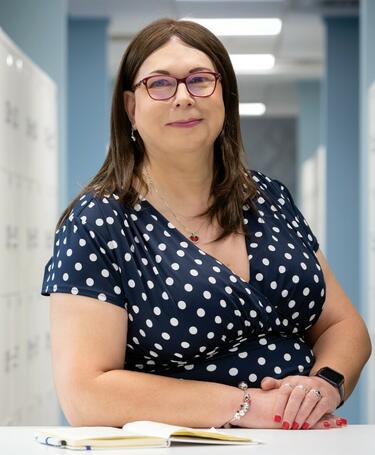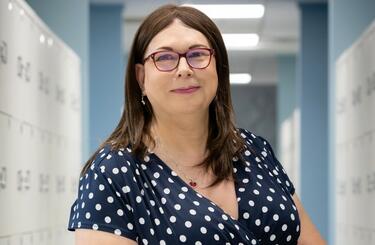
Counterfeiting in the nuclear sector

The nuclear sector is a heavily regulated industry, but constant vigilance is required for counterfeit suspect fraudulent items. The CQI’s Chair, Amanda McKay CQP FCQI, Director of Quality at the Atomic Weapons Establishment, tells us how the nuclear industry works to avoid any instances of counterfeit materials.
Incidents of counterfeit suspect fraudulent items (CSFIs) can creep into any industry, but they are a cause for real concern in sectors that rely heavily on every part performing to the highest standards.
The nuclear sector is one of the most tightly regulated in industry, along with the automotive and rail sectors, so the chances of an incident resulting from a counterfeit product is very small, thanks to the due diligence of those in the industry.
Our real defence against potential problems is the due diligence we do on goods and services that are supplied to us.
“There is a different level of control in the nuclear sector,” explains Amanda McKay CQP FCQI, Director of Quality at the Atomic Weapons Establishment (AWE).
“Everything must be perfect. If there is an issue with a product, at best you catch it and you have paid for something that is not right, and you have to scrap it; at worst, you could have machined it into a piece of equipment that is now installed somewhere.
“Nuclear doesn’t always use cutting-edge technology; it uses proven technology. Something that is novel, contentious or unique might not have been tested to the level that we need, or be mature enough to be trusted to run nuclear systems. Many of the control rooms at nuclear power stations look quite archaic, but that is because they are using established control systems, software and equipment that everyone knows works.
“Somebody said to me recently, ‘if we stop trying to do the Rolls Royce solution, we would end up doing this quicker and cheaper’. I said, ‘there are some things you can do that with, but the type of things we are talking about here need the Rolls Royce, belt-and-braces solution’.
“Ten to 15 years ago, the American nuclear industry started to see counterfeit parts popping up – initially, things such as printed circuit boards (PCBs). You would get counterfeit bits, where someone would create parts that looked and performed similar but were not made to the right specification. In the US, people were taking apart old computers and creating new PCBs out of old components.
“Some really big items have been subject to this, including reactor parts and, particularly, steel. When I first started in quality, we had traceability of materials. A sheet of steel is stamped with serial numbers and batch numbers, and every time you cut a bit off, you had to transfer that identification so you had traceability all the way back to the certification. It is an art that seems to have been lost. There have been cases where large sections of concrete have had to be broken out because they have lost that traceability, so they don’t know that they have got the right material.”
Supply-chain mapping
Combating counterfeit or fraudulent products begins with a thorough knowledge of every link in the supply chain.
“Training people to identify issues early is key. We have done a lot of training in how we specify and select our supply chain, and a lot of companies do supply-chain mapping. We then test that supply-chain map; if we are buying a machine, we go to the manufacturer and say, ‘show us where all of that material comes from’. We then trace it from Joe Bloggs, who builds the machine, back to where he buys the steel. We require suppliers to test the supply chain as well.
“We suggest people understand their supply chain fully, to the nth degree. Sometimes, that is quite a difficult task, but we feel it is essential. Even the small things, such as the fastenings or bolts. If you have a fantastic machine, but you have used bolts that are not fit for purpose and are not strong enough, the whole thing will fall apart.”
It is not just counterfeit products that industry must protect against; another form of counterfeiting could arise from staff members, as McKay explains.
“Another form of counterfeiting or fraud is people who falsify their competence and records of competence,” she says. “We have found people who are not qualified to work on products or a site, who are using fraudulent qualifications and information.
“We all go through security checks and everyone believes that security will pick up any problems, but, actually, they don’t always know. If someone is being dishonest and you don’t know they are, and don’t have a means of checking it, you are never going to find out. Some of those checks should be picked up by HR or a resourcing team when they recruit though. Or, if they are a contractor – if we bring in a specialist, for instance – we should be checking them out and getting references.”
Due diligence
“Our real defence against potential problems is the due diligence we do on goods and services that are supplied to us,” McKay says. “Doing those checks upfront, rather than when a product arrives in your warehouse or a person turns up for work, prevents anything fraudulent getting near your systems. When we do have a breach, we share it with everybody else to make sure no-one else falls for the same problem. For us, it is definitely a closed-loop system.
“It is about understanding your supply chain and the map that goes with that. It is also about sharing intelligence – so, when we find something, we share it and tell everybody about it.”
“We make all of the components for our products. We are self-sufficient in our process; we have hands on everything that touches what we do.
“It takes so long to build anything in the nuclear sector, because so much time is taken upfront doing checks, selecting the right people and materials, and then making sure that everything we have ordered is exactly what we get.”
Do you want to learn more about quality in the nuclear sector? Discover the CQI's Nuclear Special Interest Group.